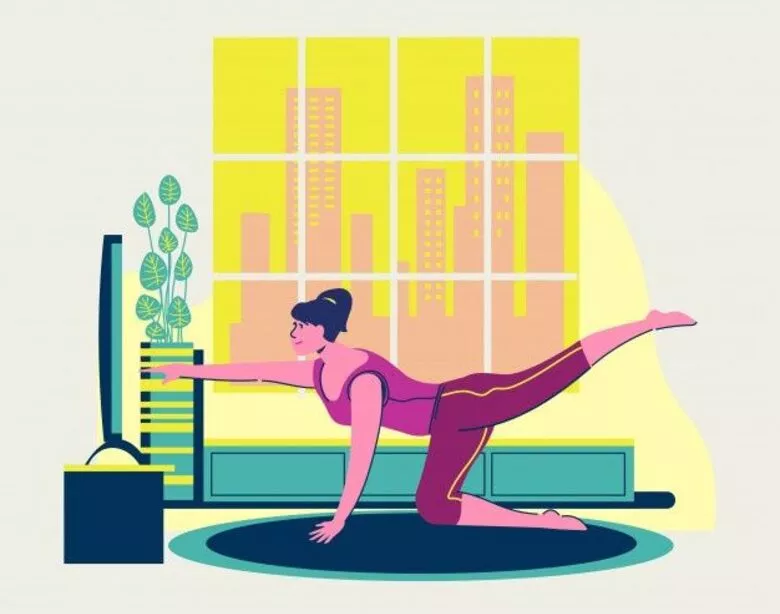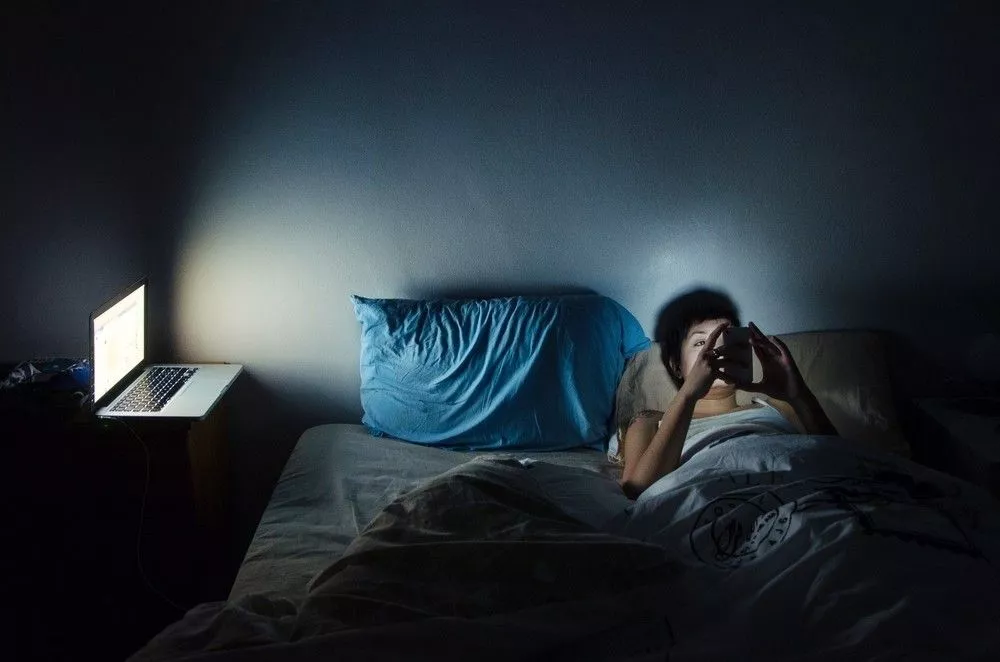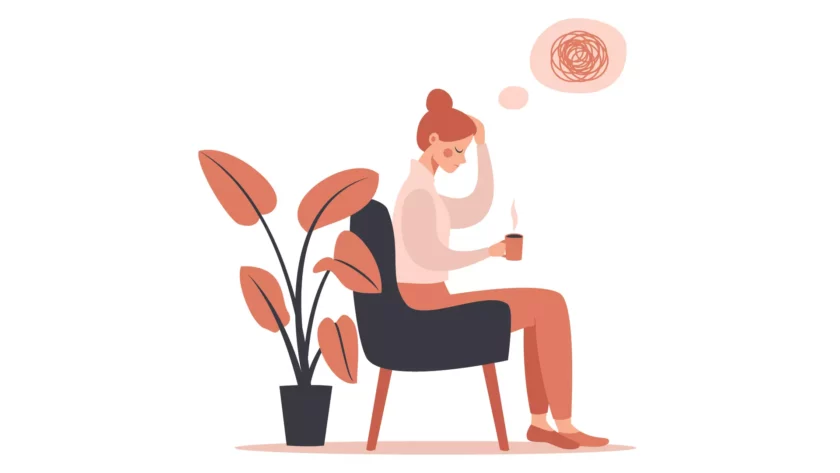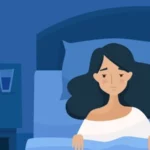Stress is a normal response to challenges and demands in our life, but it also helps us to motivate to get things done.
According to WHO stress is the leading cause of mental health illness worldwide, which is also associated with physical health issues.
Stress and anxiety affect everyone, whether it is young, old, rich or poor, gender, and cultural background (1)
For a certain period of time stress is normal, but when stress becomes chronic stress it can increase the risk of:
- Heart disease
- increase the risk of thyroid issue
- diabetes
- high blood pressure
- depression, and anxiety disorder
- headache is common in these people
- weak immune system
- the person will have difficulty sleeping
Several research suggests that stress is expected in the workplace, which can negatively impact your life, productivity, and overall well-being.
However, it is typically tied to a specific situation. Once that situation resolves, it also goes away (2)
If stress is affecting your life or causing serious health issues, then you seek the guidance of a mental health professional.
Here are the 10 techniques that you can use to manage your stress (these techniques are not only for a specific group, but it’s for all) all details include:
Exercise
Contents

Regular physical activity can help in reducing stress by releasing endorphins in brian (a chemical that is responsible for pleasure feeling)
Endorphins can help relieve pain, reduce stress and improve mood-related issues like stress, and anxiety, and your sense of well-being.
Make you target at least 30 minutes of moderate-intensity exercises, such as fast walking, cycling, and simple running (2)
Exercise is not the only limit to gymming, running, and cycling. yoga is also an exercise, which is the management of the body and the mind.
If you are a beginner in exercise, whether it is yoga, you may feel fine the first day of yoga, but the next day, it may lead to discomfort and pain.
Practice Relaxation Techniques
Relaxation techniques such as deep breathing, progressive muscle relaxation, yoga, and meditation calm your mind and reduce stress.
Deep Breathing
Deep breathing is one of the most recommended techniques for all ages, which involves taking slow, and deep breaths from the diaphragm.
Breathing exercises day by day enhance your lung capacity to take more oxygen and help people with COPD and asthma.
According to the British Lung Foundation, it can help clear out the mucus from your lungs after pneumonia, which allows more air to circulate.
Progressive Muscle Relaxation
Physical tension in the muscles can also contribute to feelings of stress, and the idea of this is to relax different muscle groups in the body.
To do PMR techniques, you have to follow these steps include:
- Find a slient and comfortable place where you can sit or lie down
- close your eyes and focus on your breath
- starting with your feet, tense the muscles in your feet and hold for a few seconds
- relax the muscles of your feet and concentrate on the feeling of relaxation
- move up to the muscles in your leg, tensing and comforting them the same way
- continue moving up the body, tensing and relaxing the muscles in your arms, chest, and back
- end with the muscles in your face, tensing and relaxing them
- take a few deep breaths and focus on the feeling of relaxation in your body
Being patient and giving yourself time to relax and let go of tension is vital.
Meditation
It is a process in which you focus on one thing like an object, breathing, and mantra with a calm mind, and can redirect your thoughts.
Harvard University, says that regular meditation practice can help with stress by changing brain responses.
Research also reveals that regular meditation can help by changing how the brain responds to stress and anxiety.
Check Out – Can Meditation Treat Fatigue? If Yes, So How? And More
Get Enough Sleep

Yes, getting quality sleep can be an effective way to manage your stress, where during sleep our brain flushes out all day mess.
Poor sleep can contribute to stress and make it difficult to cope with life challenges.
When you are tired, you less calm down and are easily irritated, which overall increases stress.
So It is recommended that healthy adults should take 7 to 9 hours an average sleep per night.
However, excessive sleeping or does not get enough sleep can lead to many health issues including:
- Insomnia
- dementia
- irritability
A Toddler should sleep 11 to 14 hours, an adult takes 7 to 9 hours of sleep, and older adults (above 65) 7 to 8 hours a day.
Eat a healthy Diet
Dietary fiber decreases inflammation throughout the body, it is seen that brain and body inflammation in a person can elevate anxiety and stress (4).
Several studies have shown that a diet rich in dietary fiber may reduce the risk of depression, anxiety, and stress (5).
A healthy diet can also help in reducing stress in several ways including:
Elevate mood – Some studies found that a diet rich in fruits, vegetables, and other nutrients can improve mood issues (6)
However, a diet rich in processed and sugary food has been linked to negative mood and mental health
Improve sleep – Taking enough nutrition can also contribute in enhancing sleep quality, which overall improves sleep.
On the other hand, a diet rich in several nutrients can boost the immune system, which reduces the risk of chronic diseases (7)
Avoid Caffeine and Alcohol
However, excessive caffeine intake may affect your sleep, and as we know that lack of sleep leads to stress, anxiety, and restlessness (8)
In addition, It is also important to stay hydrated by drinking plenty of water to prevent headaches, dehydration, etc
Alcohol changes levels of serotonin and other neurotransmitters in the brain, which can worsen, stress, and anxiety (9)
Drinking may lead to positive feelings and relaxation for certain periods of time, however, its problems arise after the hangover is down.
Which leads to headaches, nausea, and in the long term excessive alcohol even leads to stress, anxiety, and depression (10)
Connect with others & Disconnect with Mobile, And Laptops

Social support is vital for managing stress, spending time with friends and family, loved ones, and considering support (11)
It is really true that talking to someone about your feeling (sad, when you are under stress or anxiety) is very helpful to calm down your emotions.
But how can talking to someone be helpful in reducing or calming down your emotions?
It helps in reducing stress because it allows you to express yourself to others (who really understand you) and help you with that (12)
Constant connection to mobile, and laptops can lead to stress and even anxiety through impact your sleep.
Whereas blue light can disturb your natural sleep cycle and decrease the production of melatonin making it difficult to fall asleep (13)
Melatonin s a hormone that controls the sleep/wake cycle or circadian rhythm.
A study conducted on 43% of Saudi university students who are using smartphones for long hours had decreased sleeping hours with low energy the next day (14)
One of the main reasons is our laptop, and smartphone light, which hit directly our eyes, that cause dry eyes and blur vision.
All this includes lack of sleep, irritation, and low energy indirectly leading to stress,
Find Time For Activities You Enjoy
Following up on your hobbies, and things that make you feel happy really evaporate your stress, and even minimizes the impact of chronic stress.
One study found that those who involve in physical leisure activities for at least 20 minutes once a week are less susceptible to fatigue.
Engaging in hobbies can help in reducing stress because they provide a sense of enjoyment and relaxation.
When participating in an activity that feels you happy, can help you take your mind off stress and also connect with others (15)
Learn To Say No
It’s true that saying “no” to things sets boundaries for unnecessary things and reduces your stress levels.
Research also suggests that learning to say no, thank you” can also be an opportunity for someone else to show his or her skills.
It keeps you away from too many promises, responsibilities, and commitments which is a way that somewhere leads to stress.
However, saying “no” is ok but when it is necessary, it also gives you an opportunity that comes to you (16)
So it is important to say no, but when it is necessary or when you already have a workload.
Seek Medical Help
If stress is affecting your daily routine and causes several health issues, then you need to seek medical help to elevate it.
The doctor may prescribe you sleeping pills for better sleep at night if you having trouble sleeping.
May give antidepressant medication, if stress becomes chronic stress which leads to depression and anxiety (17)
Spend Time With Your Pets
If you have a pet or a baby then it is one of the best ways to reduce stress and anxiety.
Dogs can also serve as therapy where they are sometimes brought to a hospital or nursing home to help reduce patients’ stress (18).
However, some studies also say that bringing pets into hospitals may expose people to germs.
Playing with puppies increases the level of the good-feeling hormone serotonin and dopamine, which can reduce stress levels.
Dopamine is also responsible for the Pleasure and Reward feelings.
Serotonin plays a vital role in the human body it involves the regulation of various activities (e.g. behavior, mood, and memory) (19).
Additional Way To Reduce Stress
There are several other ways to reduce stress
- Practice Gratitude
- Practice self-care
- listen to music
- Find ways to manage your time effectively
- spend time in nature
Down Line
There are several ways to manage your stress, however, stress is commonly seen in the workplace, which affects your daily routine.
Without enough sleep, you may feel low and unable to focus, on the other hand, too much sleep can also affect your health.
On the other hand, exercise is one of the best ways to reduce stress, as well as improve sleep by giving you tiredness.
It found that the immune systems of people who are older or already sick are more chance to get stress-related changes.



